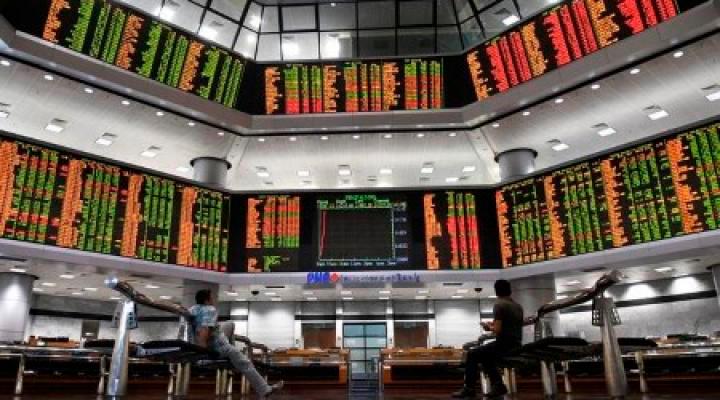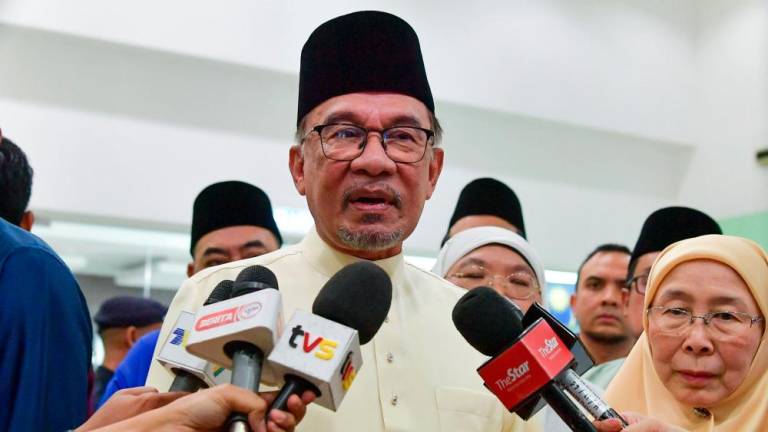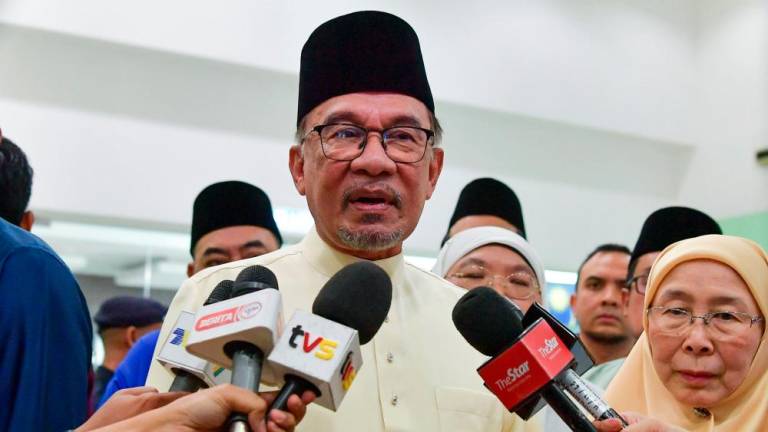PETALING JAYA: It’s only 12 days into the new year, but if we were expecting the turmoil and drama we witnessed over the course of 2020 to end at the stroke of midnight on Jan 1, then we clearly have another thing coming.
There is an internet meme making its rounds which claims 2021 sounds very similar to “twenty twenty won” and it might not just be a simple joke, because the hangover from last year’s events is still being felt.
On Tuesday, the Yang di-Pertuan Agong Al-Sultan Abdullah Ri’ayatuddin Al-Mustafa Billah Shah declared a state of emergency which, among other things, is meant to allow the government to carry out activities to curb the spread of Covid-19 and delay the possibility of an early general election.
While this might buoy investors’ confidence, the continuing political uncertainty and the unstable ruling coalition have cast a pall over the country’s political stability, according to Sunway University Business School professor of economics Dr Yeah Kim Leng.
“Already cited as a factor in Fitch Ratings’ recent downgrade of Malaysia’s sovereign rating, it may provide justification for the other two international rating agencies to take similar actions when the country’s rating is up for review,” he told SunBiz.
The declaration of an emergency is likely to elicit a knee-jerk negative market reaction but given its explicit intention, Yeah foresees that the overall impact on the economy will be limited.
Similarly, Inter-Pacific Securities Sdn Bhd head of research Victor Wan views that it will be business as usual for the economy, despite the state of emergency, as it addresses the political issues more than anything else.
“At the same time, it is also not business as usual given the rising number of Covid-19 cases in the country.”
He noted that the suspension of parliament is an opportunity for the authorities to carry out the agenda to address the large spike in cases without the accompanying political noise.
Affin Hwang Asset Management views the emergency declaration positively, opining that the market will come to appreciate this event after a typical knee-jerk selloff, as the alternative is an election during a health crisis, with the likely result of a hung parliament and accelerating the spread of Covid-19.
However, it cautioned that there is a need to watch out for foreign investor reaction, currency impact and potential rating changes.
“Bottom line, we don’t think equity markets will see a severe selldown. Political stability is the better alternative. Whether there will be upside will depend on new government policy to drive growth, which is not known at this point in time.”
As seen on Tuesday, panic selling did indeed occur before Prime Minister Tan Sri Muhyiddin Yassin’s announcement that economic activity would carry on as normal during the emergency period, subject to the standard operating protocols of the movement control order (MCO) that was imposed in some states on Monday.
The FBM KLCI opened 1.41 points lower at 1,615.84, and moved between 1,590.71 and 1,621.10 throughout the trading day. The market did see some calm restored by 5pm, closing at 1,612.04 points, 0.32% lower than Monday’s close.
According to Bernama’s market report, total volume surged to 8.41 billion units worth RM5.76 billion from 6.63 billion units worth RM5.56 billion on Monday.
Meanwhile, analysts ventured that the reintroduction of the MCO to the eight most affected states and territories, would have less of an impact than the initial MCO restrictions last year.
OCBC Treasury Research’s economist Wellian Wiranto said the dramatic turn of events will drag the country’s nascent economic recovery and, thus, he foresees 2021 gross domestic product growth at 5.7%, down from 6% previously.
“Indeed, we see the risk that the economy will shrink on both a sequential and year-on-year basis in Q1, with growth rates of -0.6% quarter on quarter and -0.1% yoy, respectively.”
He pointed out that the softer growth outlook will bring challenges to the authorities in terms of remedial measures.
“Even though the emergency powers allow the government to potentially issue ordinances to temporarily supplant existing laws, including the one concerning the recently approved budget, the government may remain reluctant to undertake a ‘bazooka’-type fiscal largesse, given the external constraints imposed by market,” he added.
This will ultimately put the onus on monetary policy to shoulder the burden. To this, Wellian said it is now possible that Bank Negara Malaysia will cut its Overnight Policy Rate (OPR) to 1.5% at its meeting on Jan 20, and further to 1.25% at its March meeting.
CGS-CIMB calculated that the second round of MCO effective Jan 13-26, 2021, will translate to a daily economic loss of RM750 million, compared to RM200 million incurred under the existing conditional MCO, but still less painful than the RM2.4 billion lost under the first MCO period between March to May 2020.
It estimated that each fortnight of MCO to reduce its 2021 GDP growth forecast of 7.5% by RM10 billion or 0.7%.
“Our projections also face downside risks arising from potential delays in the administration of Covid-19 vaccines with the government anticipating that it would take 18 months to inoculate 70-80% of the population relative to our baseline scenario of vaccination by end-2021.”
CGS-CIMB also stated that there is risk that these restrictions may be extended beyond January 26, which might require additional policy measures to support the economy and does not discount the possibility of further cuts to the OPR, currently at 1.75%.
There was panic selling before Prime Minister Tan Sri Muhyiddin Yassin’s announcement that economic activity would carry on as normal during the emergency period but calm eventually returned to the stock market by the end of the trading day.













